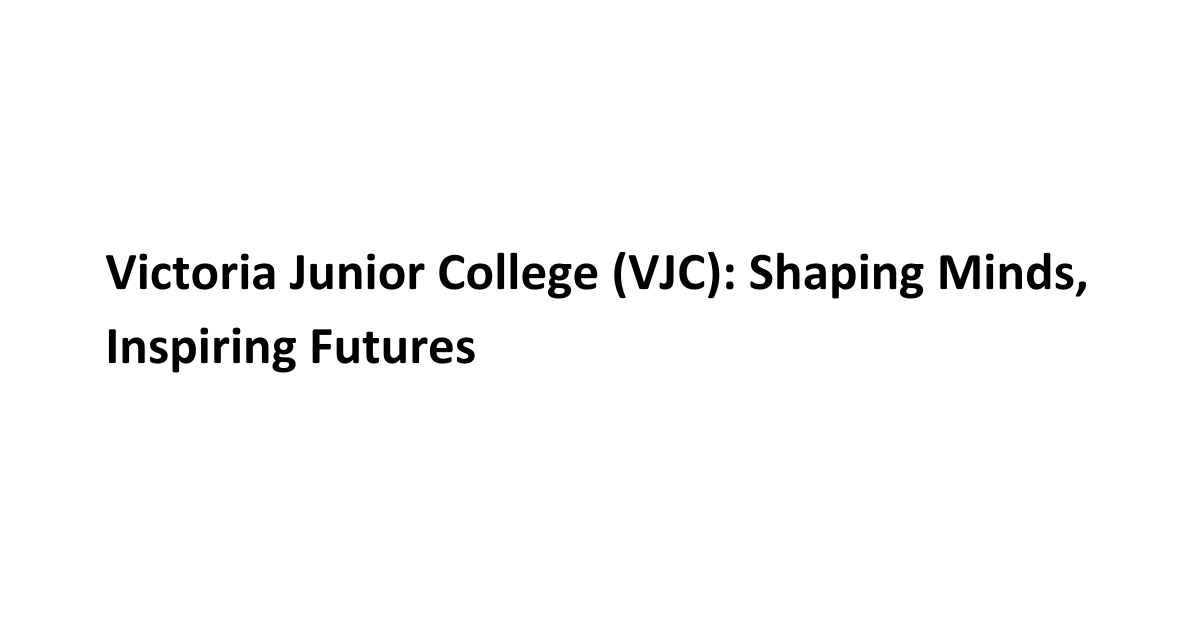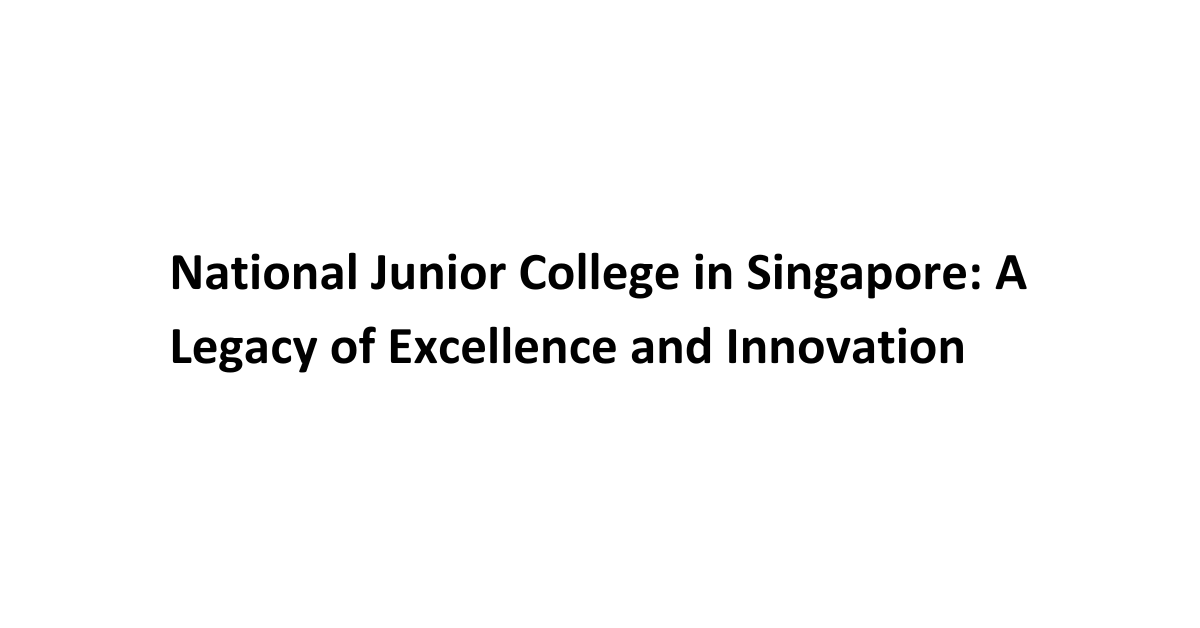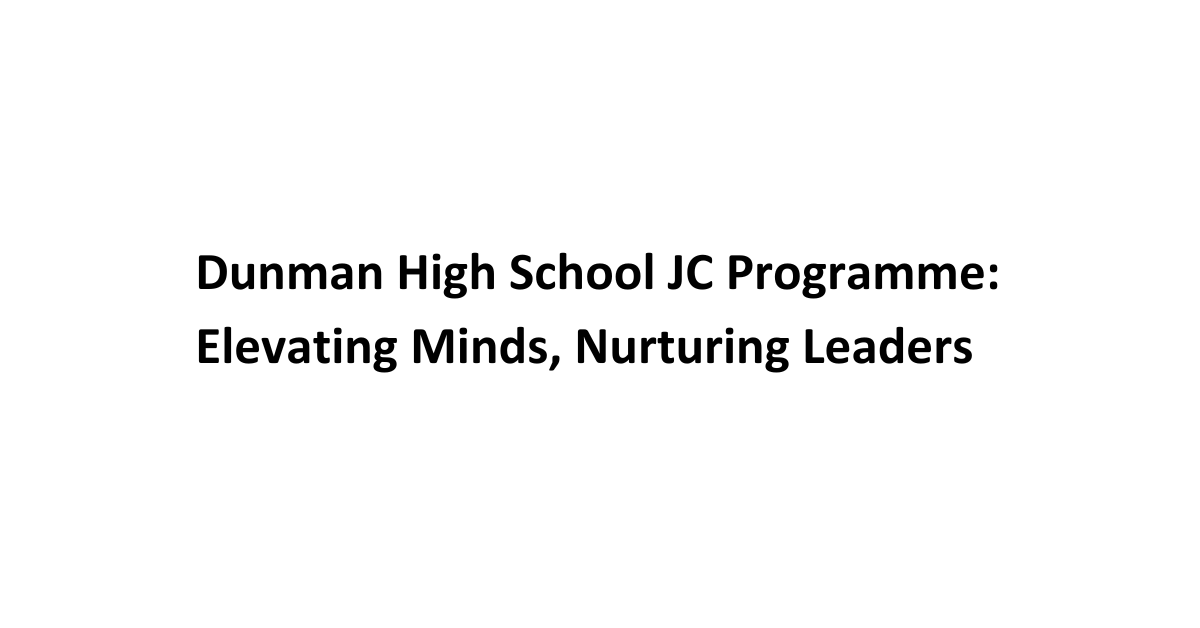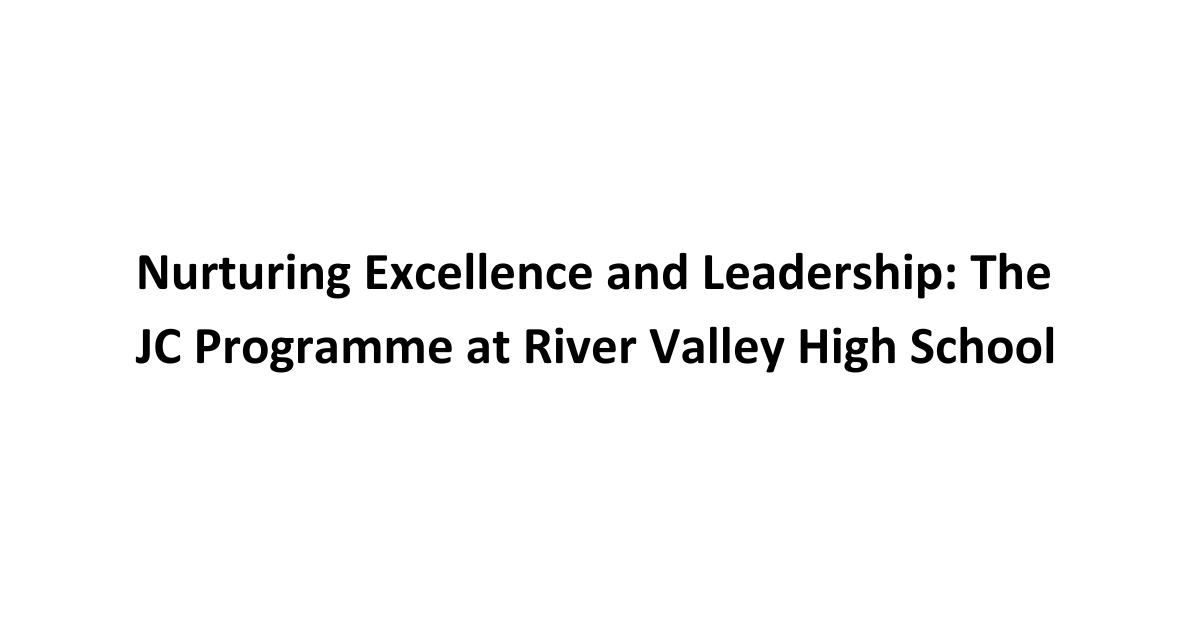19 Oct Victoria Junior College (VJC): Shaping Minds, Inspiring Futures
Victoria Junior College (VJC) stands as a pillar of excellence in the realm of education, celebrated for its unwavering commitment to academic achievement, character development, and leadership cultivation. Established in 1984, VJC has played an integral role in nurturing the intellectual curiosity of students and preparing them to excel in their future endeavors. In this blog article, we will delve into the unique qualities, programs, and values that define Victoria Junior College and have made it a distinguished educational institution.
A Tradition of Academic Excellence:
Founded in 1984, Victoria Junior College has a rich tradition of academic excellence. The college offers a diverse range of subjects, spanning arts, sciences, and commerce, ensuring that students can explore their academic interests and develop their skills in their chosen field. The dedicated faculty at VJC is committed to providing a rigorous and intellectually stimulating environment, inspiring students to reach their fullest academic potential.
Holistic Education:
VJC believes in the importance of holistic education. While academic achievements are highly valued, the college also places a strong emphasis on character development and personal growth. Students have access to a wide array of co-curricular activities, from sports to arts and cultural clubs, that allow them to explore their passions, develop leadership skills, and build lifelong friendships.
Values-Based Learning:
At the heart of VJC’s educational philosophy is a commitment to values-based learning. The college instills in its students the importance of values such as integrity, respect, and responsibility. VJC believes that character development is essential for producing responsible and compassionate individuals who can make a positive impact on society.
Leadership Development:
VJC is dedicated to cultivating future leaders. The college offers various leadership programs, seminars, and opportunities that empower students to take on leadership roles within the institution and in the wider community. Leadership skills are seen as essential for bringing about positive change and progress.
Global Perspectives:
VJC recognizes the importance of global perspectives in today’s interconnected world. The college encourages students to embrace diversity and multiculturalism, preparing them to address global challenges. VJC often collaborates with international institutions and offers exchange programs, giving students opportunities to experience different cultures and broaden their horizons.
Community Engagement:
One of the standout features of VJC is its dedication to community engagement. The college inspires students to give back through community service initiatives. These programs aim to develop a sense of social responsibility and empathy, reinforcing the importance of contributing to the welfare of others.
Caring and Supportive Community:
The VJC community is known for its warmth and inclusiveness. Teachers, staff, and alumni play an integral role in creating a supportive and nurturing environment for students. The close-knit VJC family fosters a positive and enriching college experience.
Modern Campus and Facilities:
VJC boasts a state-of-the-art campus equipped with modern facilities that support students’ educational and extracurricular needs. These include well-appointed classrooms, laboratories, libraries, sports amenities, and spaces for co-curricular activities. These resources are designed to support students’ academic pursuits, allowing them to thrive.
Innovation and Research:
VJC encourages innovation and research, fostering a culture of inquiry and curiosity among its students. The college supports research initiatives and projects that allow students to delve deeper into their academic interests and explore new horizons.
Excellence in Education:
Over the years, VJC has seen its students excel not only academically but also in various national and international competitions, reflecting the quality of education and opportunities offered by the college.
Conclusion:
Victoria Junior College (VJC) is more than just an educational institution; it is a nurturing ground for academic excellence, character development, and holistic education. With a strong foundation in values-based learning, leadership development, and global perspectives, VJC continues to produce graduates who excel academically and contribute positively to society. As VJC looks ahead, it remains dedicated to its mission of nurturing the leaders of tomorrow and inspiring a community of lifelong learners who will make a meaningful impact in their chosen paths and in the broader world. Victoria Junior College is a testament to the power of education in shaping minds, nurturing leaders, and making a lasting impact on society.






